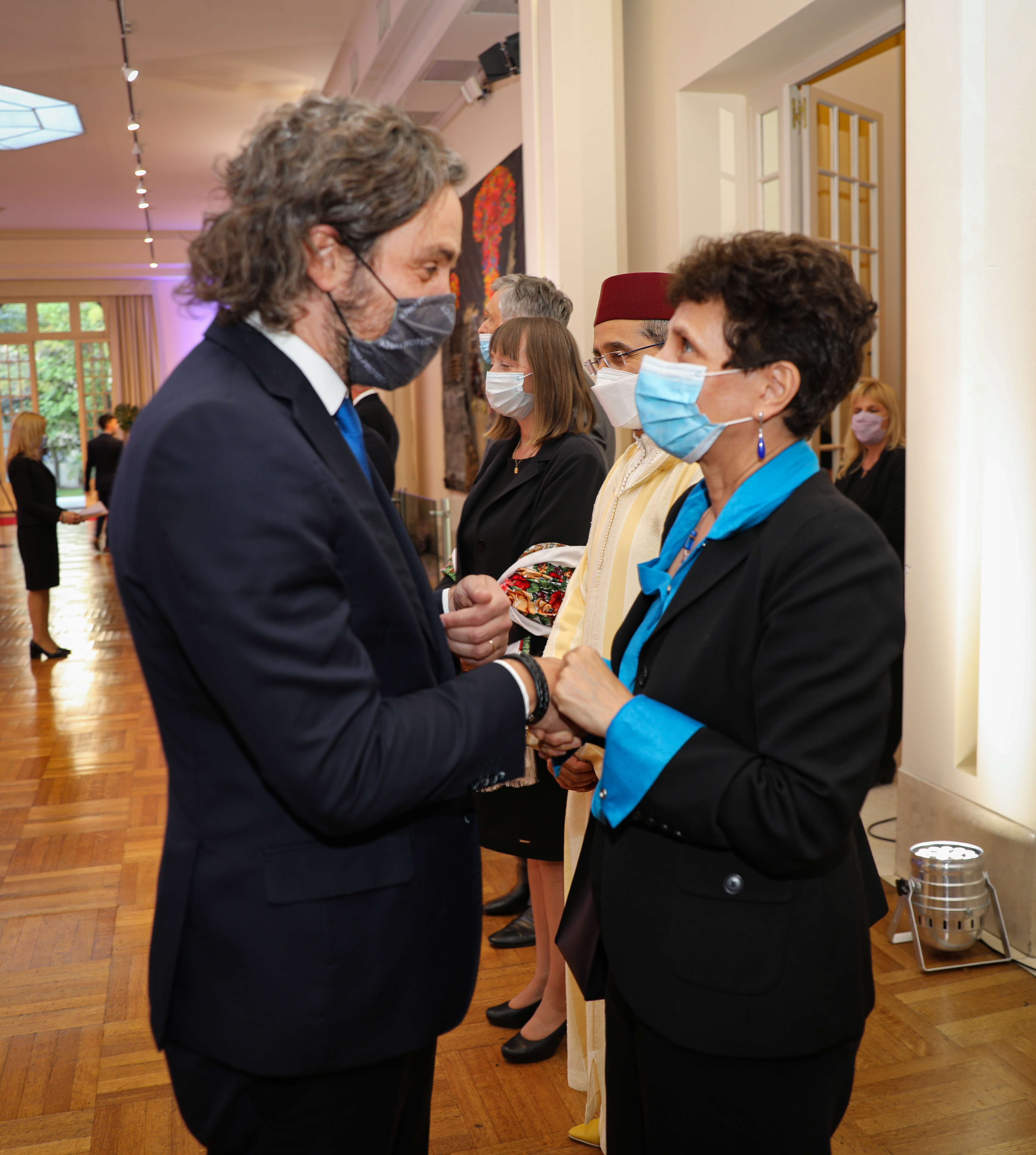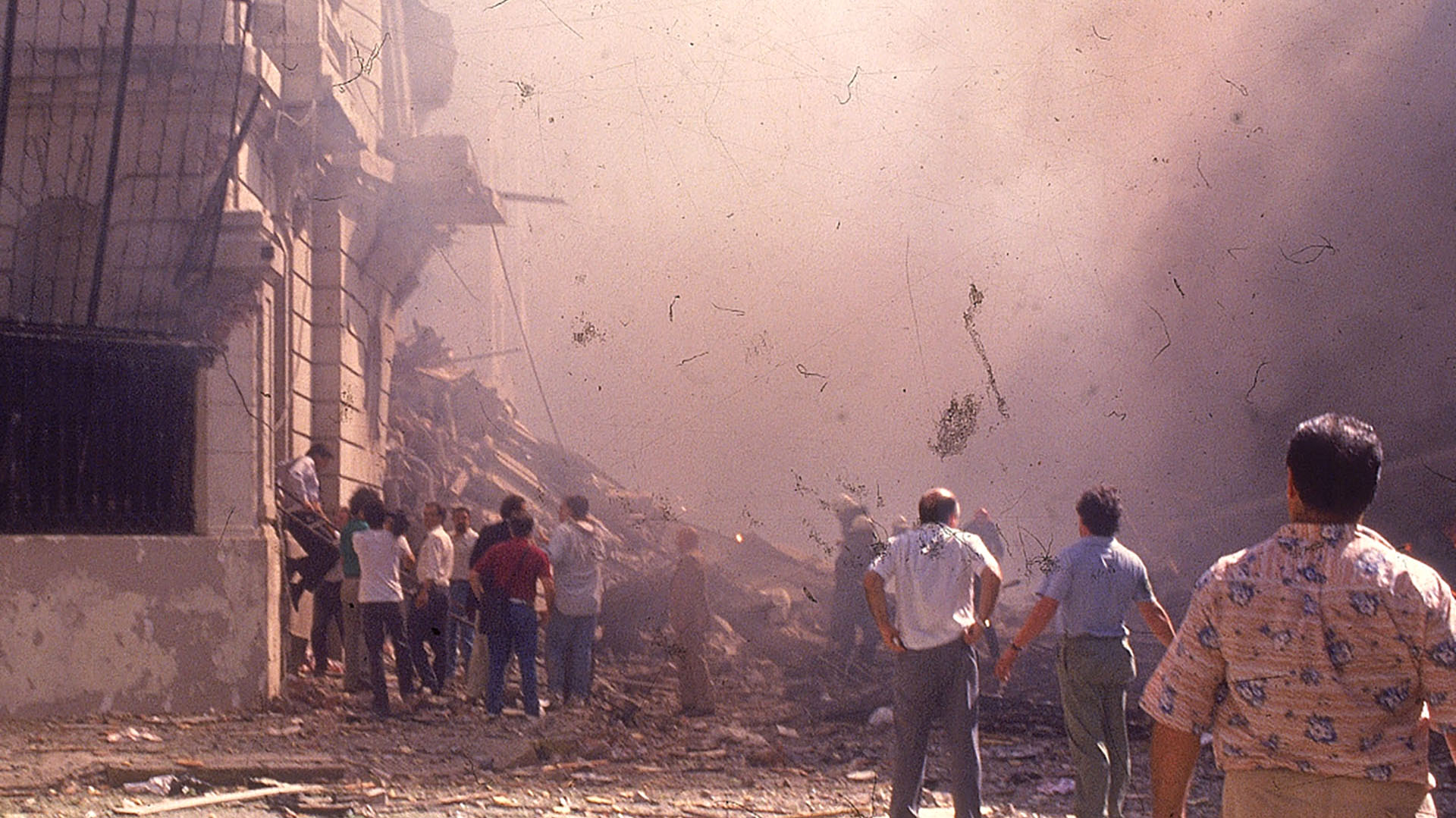This Thursday will mark the 30th anniversary of the attack on the Israeli embassy in Argentina and there will be a series of tributes to commemorate what happened in 1992, which killed 29 people and injured more than 240 others.
In a conversation with Infobae, the Israeli ambassador Galit Ronen recalled the pain of a terrorist act and renewed his demand for justice because there were no perpetrators who were imprisoned 30 years later.
He also described in detail the activities carried out and that will be carried out tomorrow to save the memory of the deceased and the horrors associated with the attack on the embassy. “We expect justice, even if it is slow,” he said.
“Thirty years have passed since the attack on the Israeli embassy. How do you feel after 30 years when there were no prisoners responsible for terrorist acts?
“After 30 years, we can feel that there is no justice. On the one hand, he feels the pain and emptiness left by those who are no longer with us. On the other hand, we are still looking for justice. We expect justice even though it is slow. We want it to be.In fact, we need it.
Why is there still no justice after 30 years?
“I don't know why. My job is to remember the victim and say that I know who is responsible for it.His name is Hezbollah and his last name is Iran. They were also behind the AMIA attack two years later. The Argentine Ministry of Justice acknowledged it. We know who attacked them. We have a red warning. We must do everything we can to capture these people. On the side of Israel, we cooperate in everything we can.

“It was categorical. The responsible person has a first and last name.
—The Supreme Court of Argentina clearly stated that the attack was carried out by the armed wing of Iran. We know that Hezbollah is Iran and is behind many attacks. Twice not only in Argentina, but in other countries around the world. Wherever Iran is, there is a problem.
“The case is always in the hands of the Supreme Court. Do you think that sooner or later there will be justice, or do you have to get used to it that it is a fact that will not be punished?
“We cannot get used to it. The cause is unbelievable. The Argentine government put Hezbollah on the list of terrorist groups.They were the first on the continent. We cannot say that we should get used to it. We will never get used to the lack of justice.
Do you think Hezbollah cells have been dissolved in the region or are there still potential risks?
“What we know about Iran is that it attacks where they can. If they think or think they have an opportunity here in Argentina, Israel or anywhere in the world, they will. We need to protect and prevent ourselves. They want to injure themselves anywhere in the world.
Are you afraid that there may be a new attack on the Jewish community in Argentina?
They may oppose the Jewish community in Argentina, they may oppose the Israeli embassy, they may oppose other embassies, or they may be contrary to symbols of power.As the name suggests, terrorism wants to cause terror. We do not follow our daily life.They attack where they can.Even in Argentina, it can happen anywhere.
—Since the attacks have occurred in Argentina so far, seven governments with different political signs have passed. Looking back, how did each government stop in the face of the attack and how long the investigation took place?
“I'm not going to provide a framework for all governments.It should not be my function. What I can say is that it doesn't matter which government it is in. All governments are obliged to do justice, because this attack was not against the state of Israel, but against Argentina. Argentina is the country that hosts us. The two attacks were against Argentina.
Remember where you were at the time of the attack?
“I'm trying to remember where I was since I arrived in Argentina. I don't remember, I was very young. I don't know if I was a student or a backpacker. I don't remember.
What happened, what is the perception of the Israeli people that 30 years later the Argentine judicial system did not find the person in charge?
— We're not just looking at Argentina's definition, we're looking at Argentina. We are waiting for justice. It's not just a look from the outside, but from the inside. We know who did it. Now we have to keep the perpetrators in jail.Nothing brings people who have disappeared, but they are hurt in their hearts.We can close the circle. We did justice where we could, but we know that the wounded are still there.
“Will the Deputy Prime Minister and Minister of Justice come to Israel this week, Gideon Saar. What will you do in Argentina?
“We talk about justice and it's important for you to come. A central event will be held in Suipacha and Arroyo, where the former embassies were located. This event will be held face-to-face, unlike the last two years that were virtual due to the pandemic. He will be reunited with the families of the victims.This time, relatives from Israel will also arrive.We will meet both
- Are you going to meet President Alberto Fernández?
- Yes. He is meeting with the president and the opposition. I'm going to accompany him.

— What is the relationship between Argentina and the Israeli government?
—The relationship between Israel and Argentina is profound. They are friendly. Like any other relationship, we disagree. However, we actively work on both sides to strengthen this bond of friendship. The first place in the world where the president traveled was Israel. This is very important. It was a very clear sign. This visit by the First Deputy Prime Minister is important. When there is a disagreement, we strive to find a good solution for all of us.
“What will the embassy do with respect to the tribute?
“This event has a protocol that we follow every year.There are hymns, mermaids, flower offerings, and speeches. The Embassy did a few different things. The Football League created a banner for each game. It was a tribute to this event. Many people were born during these 30 years. In Congress, there is a law that states that what happened with the attack must be in the school curriculum. To support this law, we made a 10-minute video to explain in modern language what happened at that time. Let the boys know what happened before they were born. To commemorate is to educate where hatred can take us and fight against hatred.
—Audiovisual campaigns were also held.
“We did a campaign that says “The Traces of Terror Are Still on Us”. We made a short video and asked ourselves what was left after the attack.Ashes were left.There was also a cultural message. Alejandro Runner wrote a song especially for this anniversary.
What message would you leave to the families of the victims of the attack?
“I tell my relatives that I will never go to a place of pain where they are. I can't imagine him there. But I can accept them with love and help them in any way I can. We remember every moment, every day. We accept them even if we can never understand their pain.
Keep reading:
Últimas Noticias
Debanhi Escobar: they secured the motel where she was found lifeless in a cistern

The oldest person in the world died at the age of 119

Macabre find in CDMX: they left a body bagged and tied in a taxi
The eagles of America will face Manchester City in a duel of legends. Here are the details

Why is it good to bring dogs out to know the world when they are puppies




